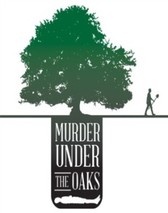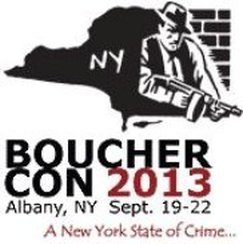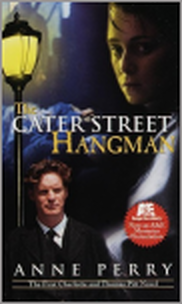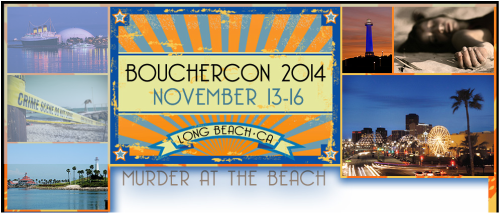Understanding Motivation: Why do some writers complete a novel...and others do not? (yet...)10/12/2015 What motivates some writers to complete a novel? This question has been on my mind for a while. Last week, I did a keynote for another university on motivating and engaging students in higher education (a facet of my day job I won’t go into here). After my talk, someone who knew I was also a novelist said to me, “You know, I used to be a really good writer. All through school, from elementary school through college, everyone thought I would be a novelist. But as an adult, every time I’ve tried to sit down and write a novel, I just can’t do it. How did you do it?” Obviously, this person wasn’t asking me how to write a novel—I’m sure she is well aware of the scores of books that explore the craft of novel writing. But she was asking me a more fundamental question about motivation. “I want to write a book. I have the skills to write a book. I even have a great idea. Other people have written books, some far less skilled and imaginative than me. So why can’t I actually complete something I want to do?”  Why indeed? The day after I delivered that keynote on motivation, I traveled to Raleigh where Bouchercon, the world mystery convention, was getting underway. There, I heard variations of the same question being posed over and over to authors everywhere, in panels, in the book room, over drinks in the bar. How did you do it? And underlying that question, the more desperate ones: Why can’t I do this? What do you know that I don’t? To be clear, I am focusing here on the questions posed to novelists about how they complete a book-length manuscript (or do it more than once), not about how they got their books published (a process which generally transcends self-motivation). I began to pay more attention to how authors replied to this question. Setting the flippant replies aside (“Lots of chocolate!” “Wine!”), a lot of them said things like “Find the kind of writing style that works for you and stick to it.” “Write a set amount of words a day!” “Just keep going!” or most succinctly, “Butt. In. Chair.” Everyone has heard this sincerely intended, tried-and-true advice a million times. The questioner would dutifully nod, but the puzzled look would remain. How do I actually do that? I know what I’m supposed to do, but I don’t actually do it. Why can’t I do what you do? [It's like trying to lose 15 pounds. We all know we're supposed to exercise daily, eat vegetables, avoid sugar, and watch our portions. Or whatever. But it's hard to do.] On the flip side, when I was chatting with some of these writers, I’d ask them what they thought was keeping them from finishing their novels. Here, there were a few variations on a set of themes. Sometimes they focused on time. I have a full time job. I’m taking care of my children, aging parent etc. I can’t find a set time every day to write. I don’t have time to do the research. Or sometimes, they focused on the story itself. I don’t know where to begin. I have writer’s block. The middle is completely confusing. I don’t know how to end my story. My critique group has confused me and I don’t know what to do. Sometimes, they focused on doubt or self-worth or other emotions. I’m just not sure if my story is any good. I don’t know if readers will like it. People are expecting something really great from me, but they’ll know I’m a fraud. I’m not really a good writer. All challenges. All difficult and stressful things. All things that can keep a person from completing a novel. But I’m telling you with some confidence: Every writer who has successfully completed a book-length novel has probably experienced all or most of the same constraints, challenges and boulders in the road. But the difference is, they successfully managed to navigate the obstacles. So the question is: How? Or maybe, Why? [And the answer is not, I assure you, that they are somehow better or more talented than everyone else!] Interestingly, motivation theory can do much to explain why some people successfully complete a given task, and others do not. I’ll say right now that I don’t have a magical novel-completion formula on hand. But I do have a set of questions and some thoughts that might help writers explore their own motivations more fully. These questions include:
Go ahead. Think about these questions. Write down a few thoughts. I’ll wait.
3 Comments
I'm so excited....Bouchercon is just a few days away. MURDER. AT. THE. BEACH. What could be more fun than that?! This will be my fourth time at this fabulous meeting of mystery readers, authors, publishers etc, and I can't wait!
All my stuff happens on the Thursday, which frees me up for hanging out at the bar, er, "networking" for the rest of the conference. First, I will be on an awesome panel called "Chills, Thrills, and Mysteries in the 17th to 19th centuries" (Thursday, November 13, 2014 2:30-3:30 pm Regency A), to be moderated by Laura Brennan, with some wonderful authors Emily Brightwell, Charles Finch, Eleanor Kuhns and Suzanne (SK) Rizzolo. Seriously, how much am I looking forward to chatting with these writers? A lot! Then, a few hours later, I will be at the Murder at The Beach "Hollywood Premiere" Opening Ceremonies 6:30 pm. I'm honored to say that my first novel, A MURDER AT ROSAMUND'S GATE was nominated for a Sue Feder Historical Macavity Award (so exciting!). The winners will be announced during this session. And just in case you are wondering, the answer is, "No I do not have anything ready to say on the off chance the world flips upside down and my name is called." There's not much need to prepare when you're up for an award alongside fabulous authors like:
The cliche is true: It truly is an honor to be nominated. But thankfully none of the other nominees start with a "Su-" sound, so I won't be halfway to the stage before I realize it wasn't my name called. ("Ahem, I was just taking a little walk. You know, to congratulate the winner. Right during the ceremony. That's okay isn't it? No? Should I just sit down then? Okay, I'll do that.") However, I'll write about the experience afterwards and let you know how it goes! Wish me luck! (and them too, of course! ;-) )  I know I really need to play it cool, but I just can't. The Bouchercon panels were recently announced, and I'm going to be on a panel with not one, but two, of my very favorite authors: Anne Perry and Caroline Todd (half of the Charles Todd writing team). I'm really looking forward to meeting the other authors on the panel too: Susanne Alleyn and Anna Loan-Wilsey, who have written some top-notch historical mysteries. And to top it all off, the session will be moderated by the lovely and talented Holly West, who was kind enough to interview me on her blog a while back.  the first Pitt novel the first Pitt novel I started reading Anne Perry's novels about twelve years ago, right when I first finished my Ph.D. in history. I hadn't been able to read for pleasure for many years--writing a dissertation will do that!--and I knew I missed reading mysteries in particular. Somehow, I stumbled on Anne Perry's Inspector Pitt series, and I was hooked. I think I read her first TWENTY books in about six months. I kid you not. I loved the characters, the mystery, and of course the history, and I couldn't get enough. When I ran out of Anne Perry novels, I turned to--you guessed it--Charles Todd. And then Rhys Bowen, Jacqueline Winspeare, and a whole slew of other authors who write great historical mysteries. These were the authors who inspired me to write my own historical mysteries. I don't know how many authors are lucky enough to meet their personal literary heroes. Back in May, I did get the opportunity to meet Caroline Todd at Malice Domestic, which was a thrill. But I can honestly say, I never expected to get this opportunity, and I have no doubt it will be a highlight of my writing career!  At last! Bouchercon 2012!!! Tomorrow I'm heading off to the world mystery convention, where readers, authors, librarians, agents, and publishers get together and talk mysteries and crime fiction. A year ago, I hadn't even heard of this amazing convention. More over, when I had arrived as a wide-eyed new author, I quickly discovered I wasn't even pronouncing the name properly. Named for famed mystery critic Anthony Boucher, apparently the conference is pronounced Bough- cher-con, not Bowchercon, and certainly not Boochercon like I thought. Or maybe it's the other way around. Oh well. I'll find out tomorrow. Since A Murder at Rosamund's Gate is not out yet (Don't forget, April 23, 2013!), I won't be doing any book signings or anything like that. Given that I haven't worked out a fun way to sign my books yet (6 1/2 months to figure that out!), that's probably a good thing. However, this year, I do have a teeny space in the program. I will be part of a "New Authors Coffee" on Friday morning-- I get to stand up for two minutes, with a slew of other new mystery authors, and share something about my book. What exactly I'm going to say, I have no clue (which, you know, seems to be a bad thing to admit to other mystery writers. :-) ) Two minutes. A commercial break. An amusement park ride. A descent in an elevator. A walk down an aisle. Not a lot of time, some might think. Certainly, that's true. I've asked myself, how can I capture ten years of work, three hundred some pages, an entire cast of characters, plot and subplots etc in just 2 minutes? It's daunting, overwhelming...and wonderful. A huge, strange moment. My first public moment as an "author." (Here's hoping I don't blurt out nonsense! Or babble on about the concept of two minutes! Or muse about my pronunciation issues. Most importantly, let's hope I focus on my book!) Two minutes. Everything changes! |
Susanna CalkinsHistorian. Mystery writer. Researcher. Teacher. Occasional blogger. Categories
All
Archives
May 2023
|

 RSS Feed
RSS Feed